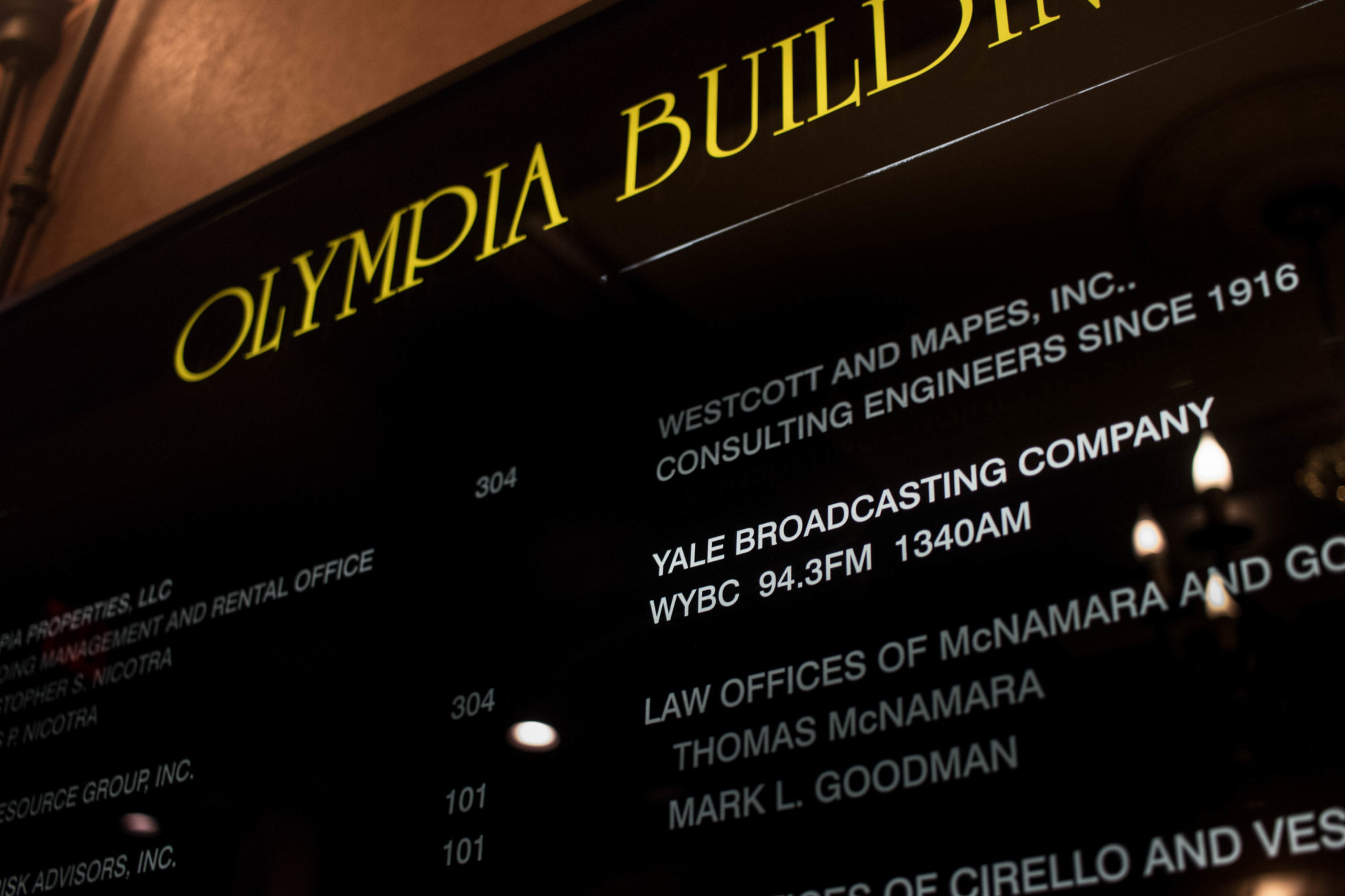
WYBCx, Yale’s student-run online radio station, has temporarily ceased operations after discovering it does not have licensing agreements for the music it plays.
Students involved with WYBCx heard about the problem on Friday afternoon, when Emma Keyes ’19, the station’s general manager, sent out an email saying that “we do not have a licensing agreement for any of the music we have been playing which is NOT GOOD.”
“Seriously, we have been operating illegally since 2008,” Keyes said in the email.
According to Section 118 of the United States Copyright Act, noncommercial broadcasting entities are required to obtain a compulsory license for the use of published music in works that, unlike visual performances or theatrical plot lines, are not dramatic. Keyes softened her stance in a follow-up email on Saturday evening, apologizing for the “overblown” tone of her previous message and explaining that the WYBCx stream will remain shut down until the group ensures that it complies with all the necessary requirements.
“The stream will hopefully be back up and running within the next week,” Keyes wrote. “For that period, it is simpler for us to shut down the stream entirely than parse through which shows would be able to broadcast or not.”
Keyes declined to speak with the News over the weekend, saying she needs to consult with lawyers.
As the radio station grapples with the need to obtain licenses for its music — and addresses past copyright violations — it will have to confront the possibility of a significant financial burden. According to tax forms, the Harvard Radio Broadcasting Company — which owns a student-run Harvard radio station, broadcast both on FM and the internet, as opposed to WYBCx, which operates solely on the internet — paid $9,617 in licensing fees in fiscal 2015 alone.
In her emails, Keyes pledged to work to solve the problem as soon as possible and to keep members of the station updated in the meantime. She noted that some things will have to be “tightened up” for the station to resume business as usual.
“Obviously this sucks, but hopefully the situation will be resolved in an effective way and we can correct the sins of our forefathers,” Keyes said in her first email. “Shoutout to the last ten years of illegal WYBCx Yale Radio.”
WYBCx formed in the mid-2000s with the aim of becoming Yale’s new go-to college radio station. Over time, the original WYBC 94.3 FM station gradually transformed into a professionally run radio station catering to the broader New Haven audience with less focus on the Yale student body. While WYBCx is exclusively online, WYBC 94.3 FM is broadcast both online and over the airwaves.
To cover its operations, WYBCx relies predominantly on its mother organization, the Yale Broadcasting Co. Inc., which owns the for-profit WYBC 94.3 FM. The company had over $1.4 million in assets as of June 30, 2016 and made over $670,000 in program service revenue, including from advertising, in fiscal year 2016, according to its latest tax filing.
Income generated by WYBC 94.3 FM could potentially go toward paying licensing fees for WYBCx and covering any fines that past copyright violations might incur. WYBCx is not funded by the University.
By contrast, the student-run Harvard radio station has historically been fiscally self-sufficient, collecting revenue through donations, advertisements and other sales, according to the group’s president, Aaron Fogelson.
Fogelson said the radio group pays “thousands” in licensing fees every year to performing rights organizations Broadcast Music Inc., American Society of Composers, Authors and Publishers, and the Society of European Stage Authors and Composers. He added that the group often looks to its trustees — some of whom are in the radio industry — for advice on copyright issues.
Multiple students involved with radio at Yale told the News they are uncertain about the specifics of the organization’s copyright problems but are optimistic that the situation will be resolved.
“People are excited to get their shows back on the air, but it doesn’t seem like an end-all, be-all,” Fiona Drenttel ’20 said. “People are hopeful.”
Jingyi Cui | jingyi.cui@yale.edu and
Britton O’Daly | britton.odaly@yale.edu







